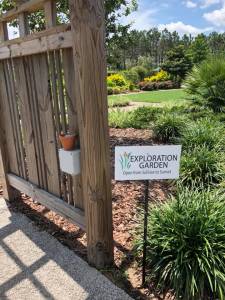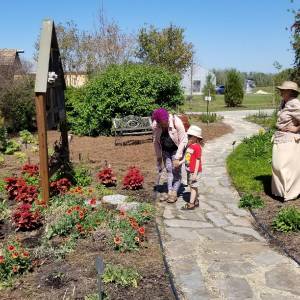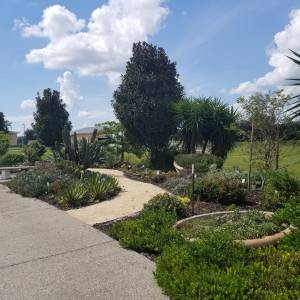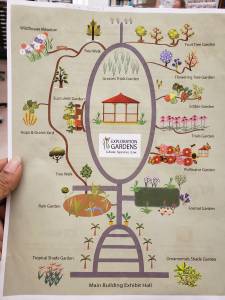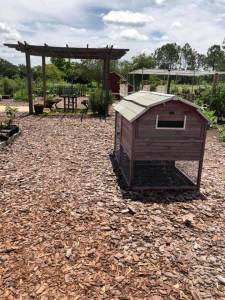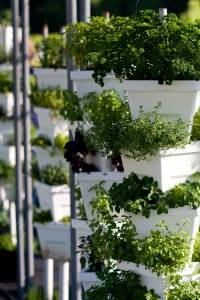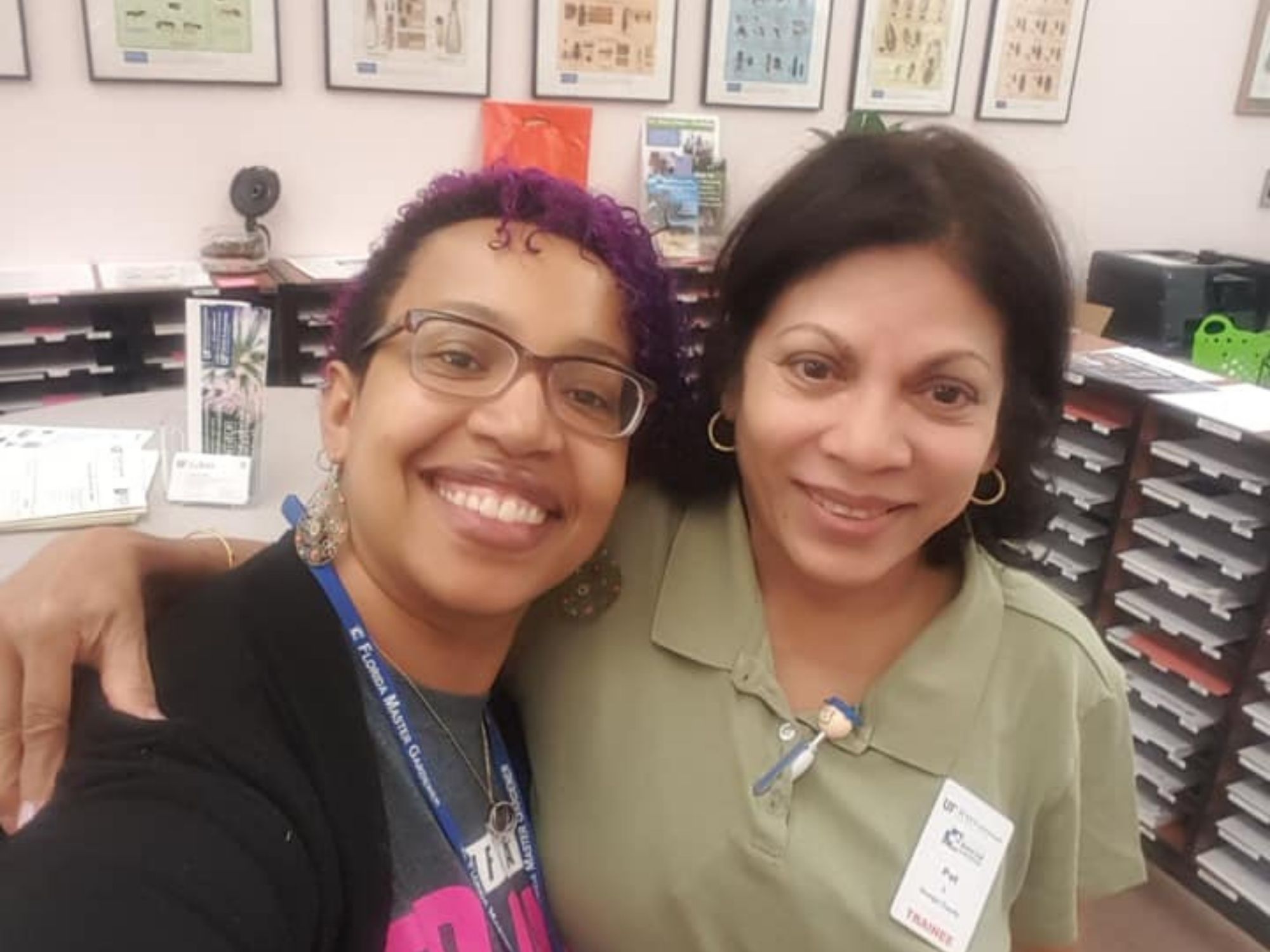
Sometimes giving back is a journey we embark on willingly and naturally. This is the case with Angie Dixon (AD) and her experience with the University of Florida’s Institute of Food and Agricultural Sciences (IFAS) Extension office where she actively volunteers and is part of their certified Volunteer team as a Master Gardener.
AC: For your Day of Giving, what organization did you volunteer for?
AD: I am a certified Volunteer Master Gardener with the University of Florida’s Institute of Food and Agricultural Sciences (IFAS) Extension office for Orange County here in Orlando. It’s a national program that state universities run for the local communities to share information and resources about local landscaping, home maintenance, and other natural resources.
AC: Can you tell us a bit more about the program and what the IFAS does?
AD: Yes, let me give you the official information and the interpretation. The website describes it as: The University of Florida’s Institute of Food and Agricultural Sciences (UF/IFAS) is a federal, state, and county partnership dedicated to developing knowledge in agriculture, human and natural resources, and the life sciences and to making that knowledge accessible to sustain and enhance the quality of human life.
Basically, the University chapters of IFAS have a central office in each major county throughout US and PR that houses community resources like landscape maintenance, budgeting resources, home and property maintenance resources, 4-H clubs for kids to learn everything from arts/crafts to raising cows, pest control, etc. We provide information through classes, workshops, expos and the plant clinic for anyone who is a resident of the county to get information that is part of living in that county, so for me, Orange County or Central Florida.
AC: You mentioned you were a Master Gardener Volunteer; can you tell us a bit more about your role?
AD: As a Master Gardener Volunteer, I work specifically with the Plant Clinic which is an office where people can come with questions about their landscape maintenance. Here I help people when they have questions about why their grass is dying or their tree won’t produce fruit or if they have pests eating their rose bushes. To help them, I use the information that the Universities have studied and tested to provide solutions and information for residents. Also, I help maintain our Demonstration Gardens, which are actual gardens that IFAS maintains (we have 3 official plots that we maintain here in Central Florida) as part of its education research.
AC: Are there any requirements for volunteers?
AD: Yes, you have to apply first and once selected, you take a semester course for the position with the University of Florida, it goes from September to December. In addition, you have to shadow volunteer during that semester for at least 10 hours. And in the following year, you have to complete 75 total hours of volunteer time split between working in the Plant Clinic and events/community participation (things like working a booth at Farmers Markets or Plant Shows).
Furthermore, each year to remain in the program, you have to give a minimum total of 35 hours. Some of those hours are also education, so any lectures I attend or university publications that I read, those all count towards hours, too. Nonetheless, the great part is that I didn’t have to be a gardening expert to join the Volunteer Master Gardener program. I’m really not an expert at all, but the program teaches you how to utilize the amazing resources that are already available and FREE to the community and share that information with the community. Moreover, we do have supervisors, Extension Agents, that we get to work alongside of and they are experts so it’s a great balance.
AC: Evidently, one has to be truly committed to the cause in order to join. So, what motivated you to volunteer and join IFAS?
AD: Yes, it’s definitely a commitment. A few years ago, I wanted to start growing a few veggies, but I don’t really have a green thumb. So, we went to a local community event where they were selling plants and there was a table of Master Gardener volunteers answering questions. They helped me so that I could figure out where to start and I bought a couple plants. In the next few weeks, every community fair and event we went to (not all garden related), I noticed that the Master Gardeners were there. I thought it was pretty cool and as I started getting more involved in building my little edible garden, I kept using their resources.
When I discovered the Plant Clinic, I was there at least once a month, looking for guidance. Finally, one of them suggested that I consider the program. I was already spending time at all the events they were involved with and I was pretty excited about plants so it might be a good fit. So, I applied, and I moved my work schedule around so that I could do the training.
Since at the time, I was still pretty new to Orlando, I found it was a great way to not only learn more about gardening but learn about my community. I have met so many great people and doing the events like Festivals and Plant Fairs and Library Classes has been a great way to learn about parts of Orlando that I would not have otherwise done.
AC: How was your experience while volunteering? What did you do?
AD: In this season, I have been helping in the Gardens with the Edible garden. I do weeding and vegetable harvesting. Since the gardens are on an open field, wildlife will often eat some of the veggies or fruits growing so I come in to help clear out the messes they leave behind, too.
About once a month, I help in the Plant Clinic where people will bring in their plants or landscape samples for testing or questions. Right now, during this season of Covid, we have restructured it for the purposes of safety and social distancing, but we still take visits by appointment and by phone and email, which has been a great way to allow us to remain engaged. People are tending their landscape now more than ever because of social distancing and it’s good to have the Plant Clinic as a resource to help with that.
Also, in the coming weeks of the new year, we’ll be getting the gardens ready for the next season of testing. Soon we’ll be pulling all of the veggies out of the garden and turning the beds to get them ready for the next set of trials. So, I will be helping out with that as well.
AC: What would you say to encourage others to participate?
AD: Well, what’s great about the Extension office and IFAS is that there are so many ways to contribute and participate. Volunteering is great of course and if you have a heart to work with people and learn and share information, I would definitely encourage you to look at your local Extension office’s Master Gardener Volunteer Program or even the 4H Volunteer program which works specifically with kids. But even if you can’t volunteer, using the resources of your local Extension office or attending webinars, or live classes, when things go back to normal, are a great way to participate. There are resources for everything from home maintenance to bee keeping to learning to make jam to budgeting to mosquito maintenance and exercise classes and more! When someone uses one of our free resources, it engages them with the community more and that is our goal.
AC: Lastly, is there anything you’d like to tell our readers before we go?
AD: I really enjoy what I do. I love helping our community and all the wonderful things that I learn along the way. I invite people to look up their local IFAS Extension office and check out all of it’s great resources and if they have a demonstration garden near them, to stop by one day and visit (they are all usually open to the public any day during daylight hours). A lot of people don’t even know this is available to them and I’m sure they will find something of value to them in it’s resources. I might be biased, but I think our Demo Gardens in Orlando are the best in the state, if anyone’s visiting Orlando, you have to check them out!
